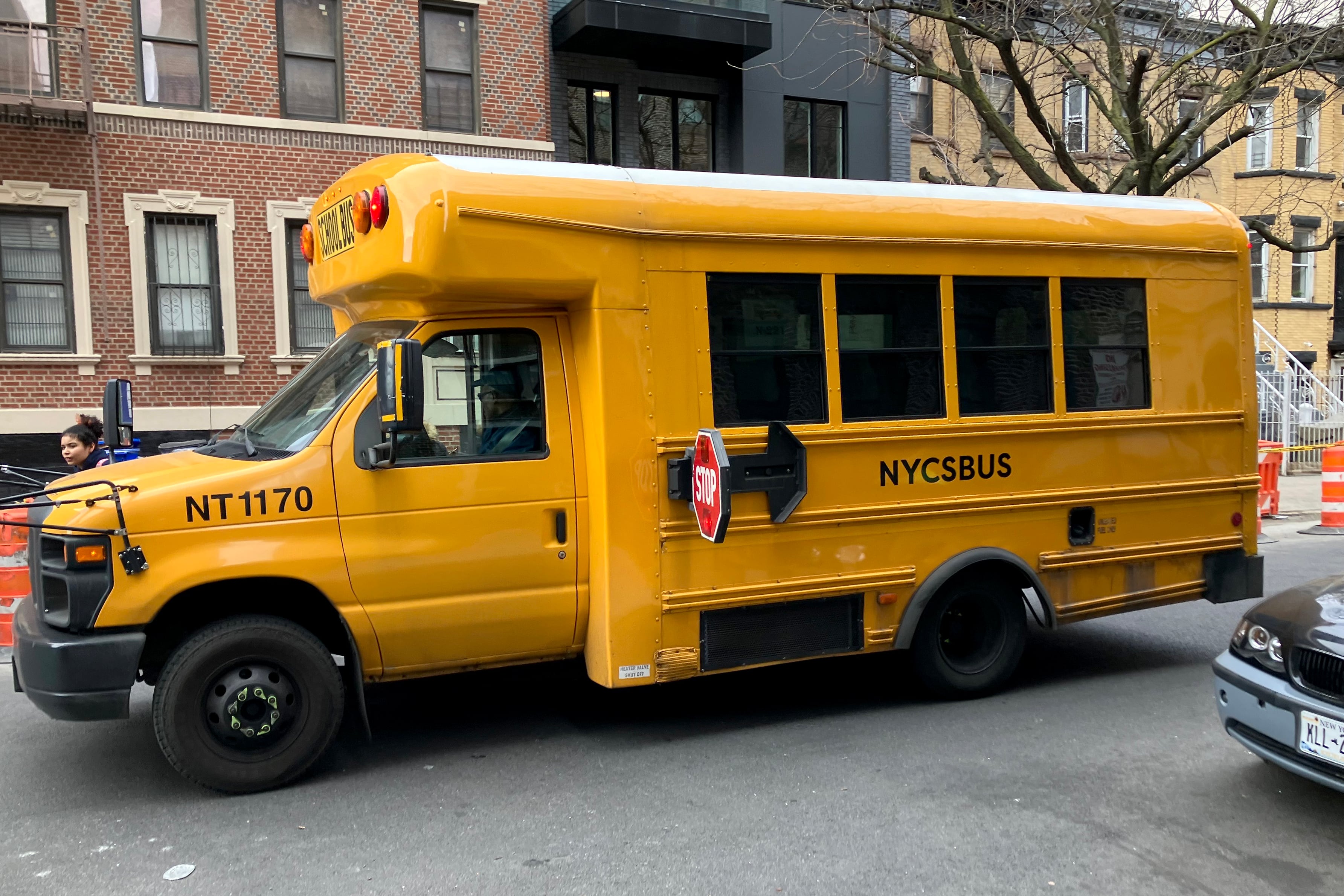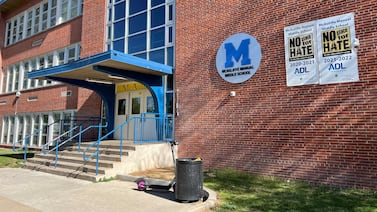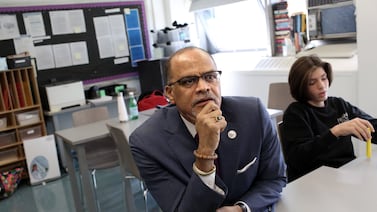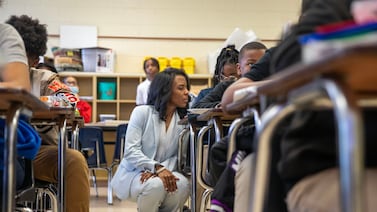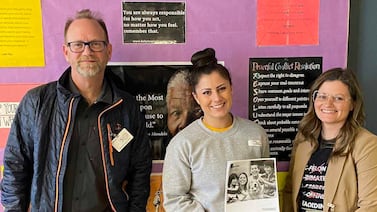Sign up for Chalkbeat New York’s free daily newsletter to keep up with NYC’s public schools.
A school bus driver strike could disrupt the beginning of the school year, Chancellor David Banks warned parent leaders this week.
“We’re currently negotiating with the [Amalgamated Transit Union] around buses and there’s some real concerns around a potential bus strike,” Banks told members of his parent advisory council on Thursday.
“Certainly hopeful that we can avoid it, but just wanted to start to plant a seed to let people know about the possibility,” he added. “You’ll hear more in the coming days.”
A school bus strike would disproportionately affect the city’s youngest students as well as students with disabilities. Banks said a strike could affect between 85,000 and 150,000 students.
Carolyn Rinaldi, the chief of staff for Local 1181 of the Amalgamated Transit Union, which represents many school bus drivers, said the union had no comment. A recent union newsletter indicated that workers at a handful of school bus companies that contract with the city overwhelmingly voted to authorize a strike.
“The Union is fighting to get back what members previously had and everything they lost,” officials wrote in the newsletter. “A fair contract for all senior and new members is the answer to making school bus a career again.”
The city’s yellow buses have often been the source of angst among families. The school bus system especially falters at the beginning of the year, and families routinely complain of late or no-show buses, which contribute to chronic absenteeism as working families may struggle to make other transportation arrangements. More recently, parents reported that buses without air conditioning topped 100 degrees.
A bus strike would represent a disruption far beyond the glitches that parents often experience during the opening weeks of a typical school year. And it would come just as schools are regaining their footing after years of pandemic-related disruptions.
Banks said parents would have “clear direction” on alternative transportation options in the event of a strike.
Education department spokesperson Nathaniel Styer said the city’s contingency plans include giving students MetroCards and “reimbursement for use of alternative transportation.” In some cases, he said, it could include “free ride-share.”
City officials have previously used ride-share services to help fill transportation gaps at no cost to families. But those services typically require that caregivers accompany their children to and from school, which can be hard for working parents.
“These negotiations are unlike most involving the city because they are between bus companies, who contract with the DOE, and their employees, who are not city employees,” Styer added. “The city encourages the parties to remain at the bargaining table until they reach a voluntary agreement.”
The city contracts with more than 50 bus companies who crisscross the city on about 9,000 routes. It’s not clear how many routes a strike would affect.
New York City’s school bus drivers last went on strike in January 2013 over job protection issues, pushing for senior drivers to get priority over newcomers. Roughly 8,000 drivers walked off the job for a month, according to reports. Since then some bus companies have voted to authorize strikes, including in 2016 and 2020, but ultimately reached agreements before taking any labor actions.
The city’s school bus system has faced serious disruptions since the pandemic when thousands of drivers were furloughed after school buildings shut down. Officials have since warned about driver shortages and have also acknowledged challenges getting drivers back on the job.
“They were laid off, in a worldwide pandemic, with no wages, no pension contributions, and, above all else, no health care,” Kevin Moran, the education department’s chief school operations officer, previously said. “And so when we talk about the driver shortage and trying to bring people back into the system, we have a fair bit of work to do to re-establish trust.”
Randi Levine, the policy director at Advocates for Children, said the organization is “deeply concerned about the impact of a potential bus strike.”
“Many students with disabilities, as well as students living in shelter, and students in foster care, rely on school bus service to get to school and we want to ensure they have a way of getting to school from the first day,” she said.
Parent leaders also expressed worry about a possible strike.
“Parents are watching these negotiations because the transportation of our children depends on having a stable workforce,” Sara Catalinotto, founder of Parents to Improve School Transportation, wrote in a text message.
If the bus companies “don’t make moves to restore the living standards of drivers and attendants, our families will keep having delays and hardship.”
Amy Zimmer contributed.
Alex Zimmerman is a reporter for Chalkbeat New York, covering NYC public schools. Contact Alex at azimmerman@chalkbeat.org.


